Description
Roger de Vlaeminck is Still Racing
by Philip Malcolm
The full article with photos can be read here: Roger de Vlaeminck is Still Racing
Roger De Vlaeminck’s record speaks for itself. In a career spanning nearly two decades he notched up more than 160 victories, not least four Paris-Roubaix titles (the equal record), three wins at Milan-San Remo, six overall titles at Tirreno-Adriatico (with 15 stage wins), and a massive 22 stage victories at the Giro d’Italia. He won seven stages at the 1975 Giro alone, on his way to fourth overall.
Quite simply, De Vlaeminck excelled at this time of year; at the Spring Classics and in the early season stage races. Indeed, he’s regarded by many as the greatest Classics rider of all time.
On the eve of the 2019 Giro d’Italia, CyclingTips contributor Philip Malcolm caught up with the now-71-year-old Belgian to talk about his “unusual” way of combining road and cyclocross racing, his legendary rivalry with Eddy Merckx, how he views the CX-turned-road stars of today, and much more.
*****************
Roger De Vlaeminck is still racing. That’s not to say that the pair of 70km rides he tries to do each week are part of a vets league, nor that he just can’t resist sprinting for road signs. In talking to the man, however, it is easy to become convinced that, even at 71, he could win a classic tomorrow, should he choose to.
The rituals of the racer still come almost compulsively to him. He checks his pulse each morning (“47”), his diet is controlled, and his day is strictly regimented. However, there is a sense that, for Roger De Vlaeminck, there are some races he will never win.
Even in his heyday, De Valeminck was something of an oddity. His approach of riding a full winter of cyclocross as preparation for the Classics was already being derided in the 1970s but the results speak for themselves. Eleven monuments, the last of only three men to win all five, a six year monopoly on Tireno-Adriatico, and 22 stages of the Giro. He also, in a manner of speaking, had a great start to 2019 with podiums at E3 Harelbeke and Strade Bianche, as well as victory at Dwaars Door Vlaanderen, Brabantse Pijl and a stunning victory at Amstel Gold. Or at least his approach to racing had a great start to the year. His modern avatars: Mathieu van der Poel and Wout van Aert.
“I’ve been saying it for years!” He says, on being asked whether cross and road riding complement each other. Leaning forward, hands wide apart, he is suddenly animated. “Cross is the best preparation for the road and of course they go together,” he said. “I didn’t do anything else for my whole career. But they all knew better — 50 years of experience and all my victories and they say for years on end that it doesn’t go together …
“If I was managing a team, they’d all have to ride five crosses every year,” he continues. “You learn how to steer, how to fall. Look at [Mathieu] van der Poel in Nokere Koerse. First flicking that stone and then the way he went down so heavily but was basically OK. Road riders can’t fall that way.”
There are legions of tales about De Vlaeminck’s preparation in the field. After his first professional race at Omloop Het Volk in 1969 — which he won — De Vlaeminck claimed he had ridden less than 30km on his road bike that winter. Then there’s the legend of De Vlaeminck coming around to Eddy Merckx’s house for a training ride one morning, ringing the bell, and then riding his bike around the Cannibal’s living room, popping a wheelie in the kitchen then riding out of the back door and down the steps. Claudine must have been livid.
These tales are almost certainly exaggerated, but there’s surely a kernel of truth that lives within them — that the intensity and handling skills required for cyclocross lend themselves perfectly to the Spring Classics and beyond.
De Vlaeminck struggled through two Tours de France at the height of Merckxism in 1970 and ‘71, winning only one stage (in Valenciennes, in the heart of Paris-Roubaix country). He then signed for Dreher, the Italian team of Franco Ciribori, which would morph into the iconic Brooklyn team with its stars and stripes jersey and blue Gios bikes. The die was cast for the rest of his career — his job was to win Classics then go to the Giro d’Italia as the team’s sprinter. He could take the summer off after that and concentrate on building for his cross season.
The result was probably the greatest pure classics rider of all time. In a career marred by tragedy and marked by defiance, De Vlaeminck would set the template of what the outside world thinks when they picture a Flemish cyclist. In short, a mud spattered, un-smiling, son of the soil who can glide over cobbles and who relishes tough races in terrible conditions. Indeed there was an unkind joke during his career that he only performed in the Flemish spring. The reason Paris-Roubaix suited him so well, the jibe went, was because it headed back towards home. De Vlaeminck’s story, however, is slightly more complex than that.
Let’s leave aside his amateur career, pausing only briefly to remark on the fact that his final year with the best youngsters in Europe yielded 25 victories and an amateur world cyclocross championship (his brother, Erik, took the professional title). Instead, let’s look at almost the last act of this period — no lesser figure than Merckx himself had marked De Vlaeminck out as the ideal signing to bolster his Faema team in 1969. At one of the final amateur races of the season, the man who had already dominated the Giro and Paris-Roubaix approached the youngster in person.
“I said ‘No. I want to ride against you. I want to win for myself’,” De Vlaeminck recalls. Imagine the strength of character required to look cycling nobility in the eye and declare himself in opposition. There were probably those who questioned his sanity when he signed instead for Flandria … right up until February the next year when he won the bunch sprint against Merckx at the Omloop.
This victory was the first action in a planned guerrilla war by the anti-Merckx alliance. By 1968, everybody could see the future of cycling and he lived in Brussels. It was up to the others to carve out their niche and challenge him where they could.
In 1970, De Vlaeminck fired another shot across the Cannibal’s bow by running him a close second in Roubaix and then overcoming him to win in a sprint at Liege-Bastogne-Liege. In the latter, he let Merckx pound away on the hills, content to merely hold the wheel until the run into the finish. De Vlaeminck then hatched a plan with his brother. Sure enough, Merckx found himself boxed against the railings when Roger launched his sprint. “I wish I had a brother like that,” The Cannibal remarked afterwards.
Liege was a victory carved out of willpower. De Vlaeminck had no right to win that race, but he did. If his plan to challenge Merckx throughout the year was to succeed, he needed another dimension. Lucky for him, there was another young pretender who was carving a name for himself. De Vlaeminck’s great friend (“My little brother”), Jempi Monsere, who he had recruited not only to his plan to challenge Merckx across all terrains, but to Flandria.
Monsere was Roger’s roommate at the 1968 Olympics, a man who had everything De Vlaeminck had and one other key piece … he could climb. The pieces were falling into place. De Vlaeminck would challenge Merckx through the spring and Jempi in the summer. When Monsere became world champion in 1970, it seemed like the alliance was onto something.
Tragically, their bond was broken before it had a chance to explore its possibilities. In an early season race in West Flanders, Monsere was killed when a car turned onto the course and hit him head on. There is a photo taken in the aftermath of the incident. Jempi on the ground, blood dribbling from his nose and ear, one eye open. The windscreen of the car is completely caved in, demonstrating the force of the blow. The De Vlaeminck brothers stand helplessly by the side of the road wearing the Flandria colours as their friend and teammate expires, his lifeblood staining his rainbow jersey.
Monsere’s death was not only a defining moment in De Vlaeminck’s career, but also his life. You’d expect nothing less of a man who to this day seems unable to separate the two. It also sent him and Erik spiralling in opposite directions. Erik tried to obliterate the memory of Jempi’s death with amphetamines and alcohol. His life would be marred by addiction and mental health problems. Roger went in the opposite direction.
Ask De Vlaeminck why, after that season he chose to spend the peak of his career in Italian teams and he’ll tell you they were years ahead in terms of the way they took care of their riders’ health. “In Belgium they listened to your heartbeat twice a year and then you’re okay to race for the whole season,” he said. “In Italy, we had scientific studies, doctors who paid attention to us through the year and prescribed vitamins when you needed them.” Of course, it probably helped that they paid much better too.
There was to be no more Tour de France, a race De Vlaeminck thought sent him too deep into his reserves and was detrimental to his health. From now on, he would fulfil his mission to eclipse Merckx in April, win some stages for the sponsor at the Giro in May and then recover. No more risks.
Even now, he follows the regime dictated to him by Carl Huybrechts, his long-time coach and friend: First thing in the morning, a half-litre of lukewarm water (“Heated in a pan, never in the microwave”), after that five different pieces of fruit, but always an apple and a kiwi. “Do you know how many kinds of fruit there are?!” It is the most enthusiastic I have seen him since we met. “Today I had a mango!” Every day, half a pineapple. It guards against cancer, you see. He jogs in the forest and he rides a bike twice a week.
The way these activities are listed is like a ritual. As if just one slip, one forgotten kiwi, will bring the grim reaper knocking on the door of his farmhouse in Kaprijke. All men must grow old and accept that the end approaches. Roger De Vlaeminck’s reckoning with this is that he allows himself some fresh bread rolls on a Sunday. Roger De Vlaeminck is still racing.
But there must be something in the combination of cyclocross, pan-heated water, the 400km training rides he undertook between races, and a burning obsession with winning. From 1972, De Vlaeminck was a serial winner in the months of March, April and May. Between that year and 1977 he of course won Paris-Roubaix four times, becoming the first man to achieve the feat — beating Merckx along the way. The pair also starred in A Sunday in Hell, the 1976 documentary immortalising the golden age of cycling.
Those victories earned De Vlaeminck the nickname “Mr. Paris-Roubaix”, but if we widen our focus a little we can see that it is no exaggeration to label him the greatest classics rider of all time. He won Milan-San Remo three times, returned to the road after his summer sabbaticals to win the Tour of Lombardy twice, and finally completed the set with his sole Ronde van Vlaanderen victory in 1977 to put the seal on a fractious rivalry with Freddy Maertens — a year earlier the two dropped themselves from the winning break purely to ensure the other did not win.
De Vlaeminck’s obsession with preserving his health saw his career last until 1984 and gave us both a thrilling dual with Francesco Moser in the late 1970s and early 80s, and an insight into the direction the sport was taking. After the 1981 edition of Paris Roubaix, won by Bernard Hinault with De Vlaeminck second — the only time he would place ahead of Moser, who completed the podium — the Belgian was accosted by a small, bespectacled doctor who worked for the Italian.
Michele Ferrari told Mr. Paris Roubaix that he could all but guarantee he would win a fifth cobblestone, if he would allow the good doctor to draw some blood at a strategic moment, deep-freeze it and then re-infuse it just before the following year’s Roubaix. After all, how do you think Moser did it?
De Vlaeminck was shocked, and scared. “I didn’t do it because the idea scared me,” he said. “It sounded terrible. I didn’t want to know anything about it.”
In an age where almost every star rider failed a test for some product or other, De Vlaeminck stands alone as the man who never failed a doping test. Maybe it was the fear of meddling with his body or maybe the sight of his brother losing his mind to amphetemines, but some fear in Roger De Vlaeminck would not allow him to cross that line.
Whilst he may be certain that his success across the spring was down to his hard work on his cross bike during the winter, he may, for once, be being a little modest about the sheer weight of his physical advantage over most mortals. A look back across the history of Paris-Roubaix reveals the last cyclocross rider to win was … Roger De Vlaeminck. He was also the first.
Why then have riders like Sven Nys, Zdenek Stybar and Lars Boom, all world champions in the field, never made the transition to monument winners? “Because they weren’t good enough!,” says De Vlaeminck. “Nys was a good cross rider, but he didn’t have that class on the road. He’s lucky he didn’t have to race against [Wout] Van Aert and van der Poel. Stybar can win a big one. He doesn’t have the pure talent but he has a good team around him.
“Those two though, they can win everything. Van Aert can win Liege, van Der Poel maybe even Lombardy. Especially now there’s only three big climbs — we had five. I can see him riding the Tour as well. Not to win immediately, but he can still improve a lot. However, they’re still champions in waiting.
“They have to prove everything on the road. But I am sure they will both become great champions.”
His only gripe, is that neither Van Aert or van Der Poel have ever called him for advice. And there, in a nutshell is Mr. Paris Roubaix. The stars of today are good, they’re just not as good as the stars of his day.
“I said to Eddy once, if we were riding today, we’d have won Roubaix 10 times! Who did [Tom] Boonen ever have to beat?” he recalls, making sure we know that his four victories were worth more than the only man to match him.
Between swipes at those who could eclipse his legacy, disguised as hard truths, raging against a cycling world that seems not to value his achievements or approach, and his campaign against the one opponent none of us can outsprint, it’s clear: Roger De Vlaeminck is still racing.
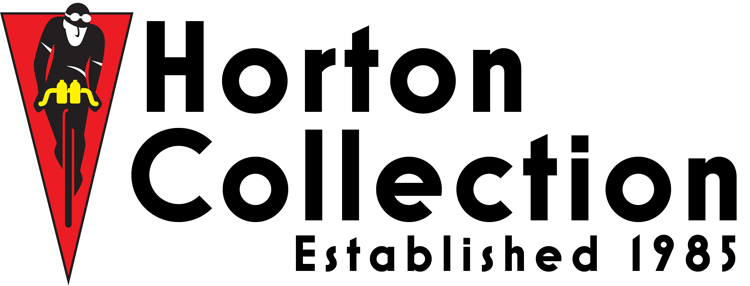
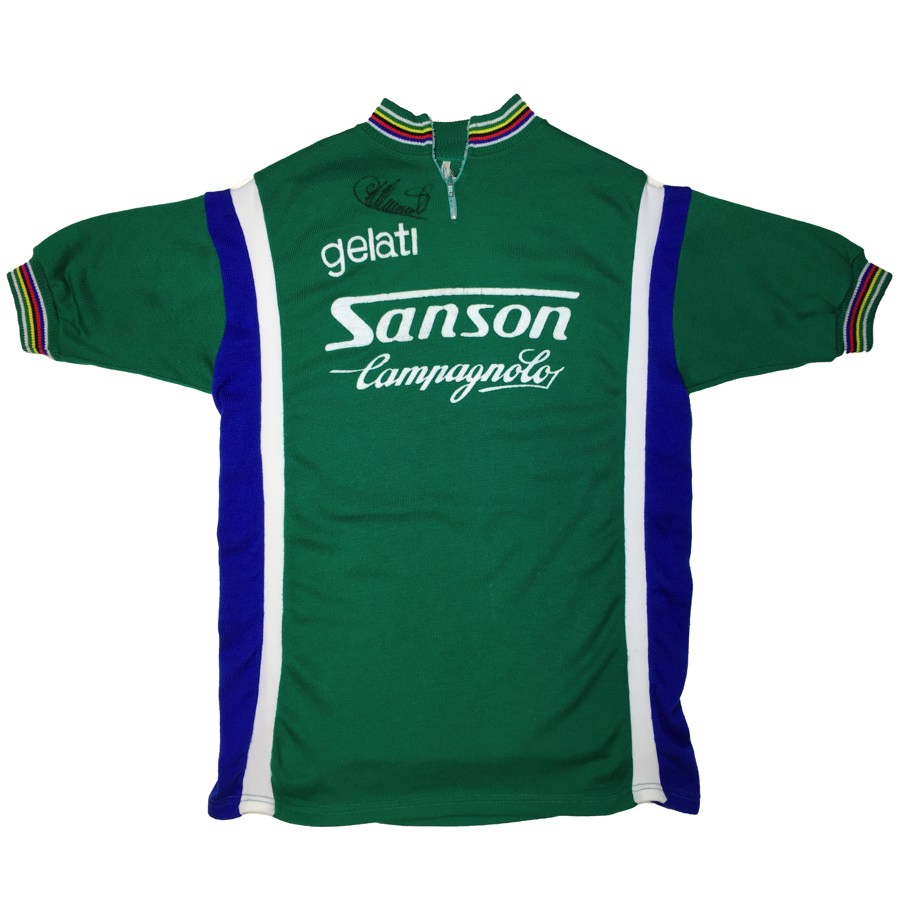
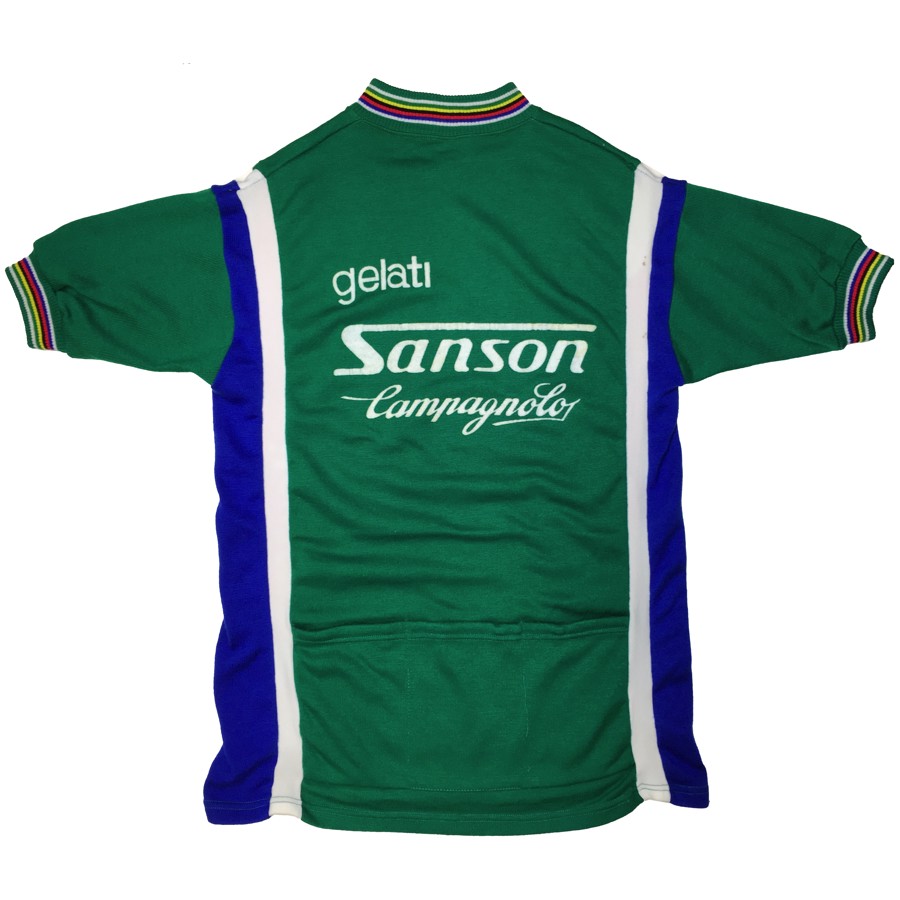
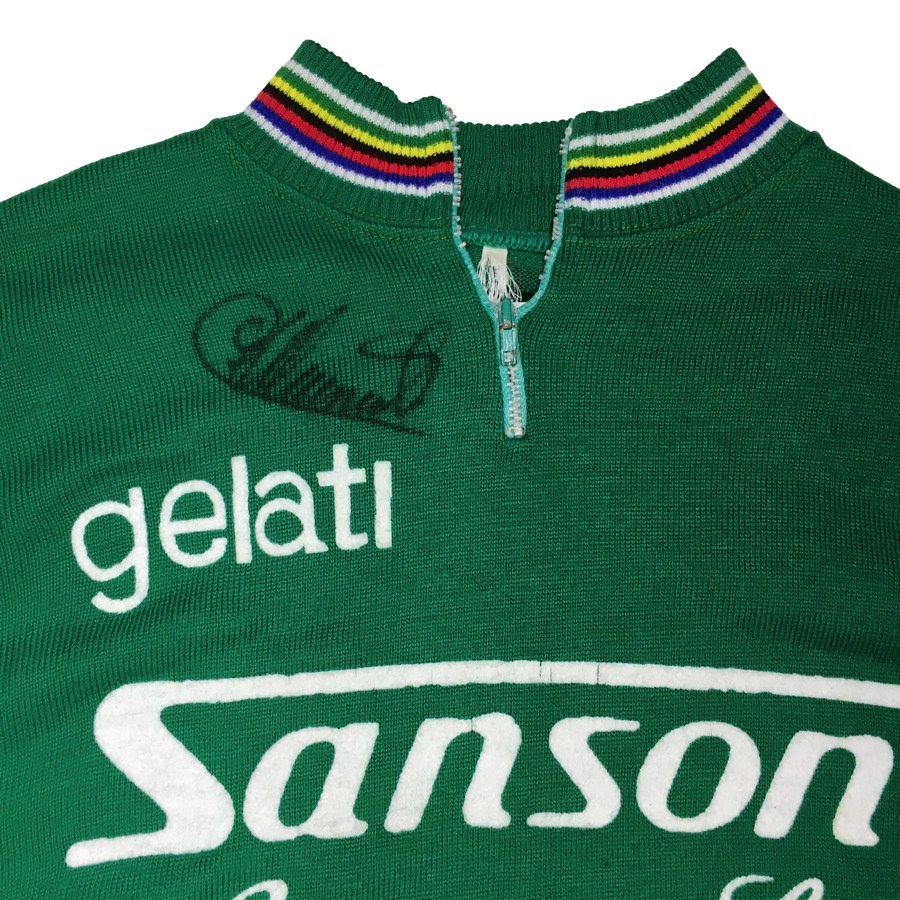
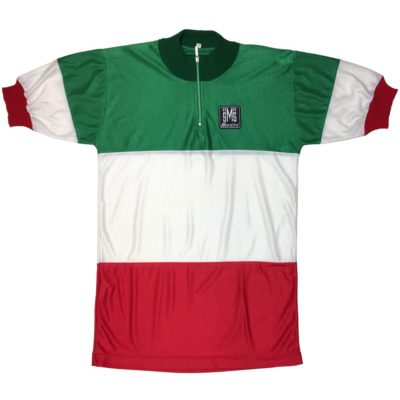
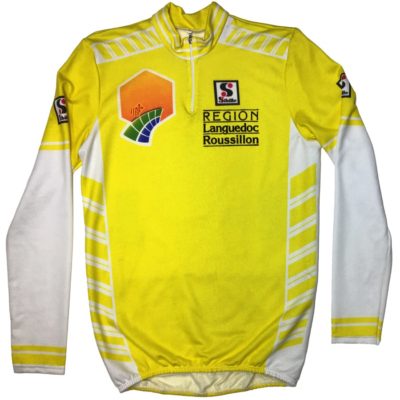
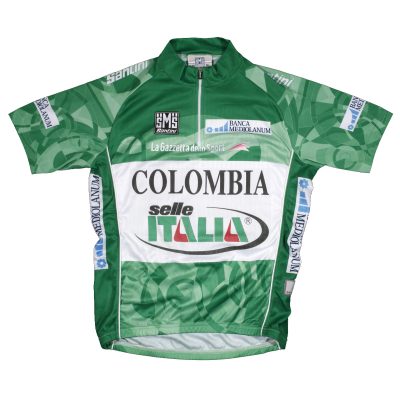
Recent Comments